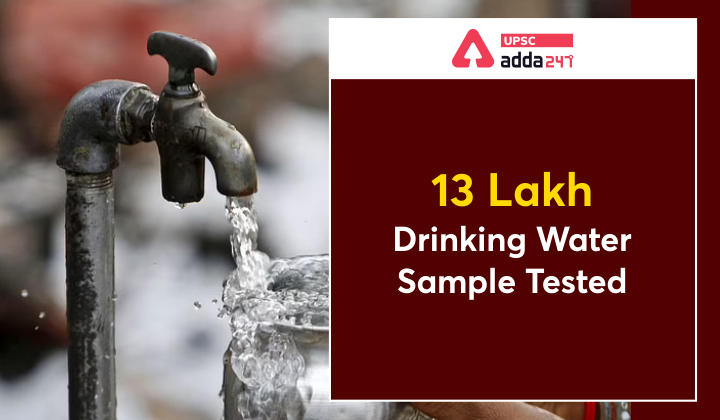Table of Contents
Relevance
- GS 2: Issues relating to development and management of Social Sector/Services relating to Health, Education, Human Resources.
Context
- Recently, an official data revealed that more than 1 lakh of the over 13 lakh drinking water samples tested across the country under a government programme have been found contaminated.
Water contaminants
- Naturally occurring chemicals and minerals, such as arsenic, fluoride, iron and uranium, in the earth layer.
- Local land use practices like fertilizers, pesticides, livestock, and concentrated feeding operations.
- Contaminations can also be by manufacturing processes like heavy metals or cyanide near drinking water sources.
- Water contamination also includes malfunctioning on-site wastewater treatment systems such as septic systems and twin pit toilets; microbial contamination through a mixture of wastewater in the drinking water source or distribution line.
- Drinking water that is not properly treated or that travels through an improperly maintained distribution system, pipes, may also create conditions that increase risk of contamination.
About water testing
- The initiative has been started under the Jal Jeevan Mission which aims to provide safe and adequate drinking water through individual household tap connections by 2024 to all households in rural India.
- The government has started water quality surveillance using field test kits (FTKs) under which five women from every village are trained in water quality surveillance using these kits to lead these activities in their village.
Geospatial Technologies In Water Sector
Water testing guidelines
- A few months ago, Jal Shakti Ministry had launched a framework and guidelines for testing, monitoring and surveillance of drinking water quality as well as a water quality information management system (WQMIS), an online portal that provides detailed information on laboratories.
- The basic water quality parameters prescribed under the guidelines are pH value, total dissolved solids, turbidity, chloride, total alkalinity, total hardness, sulphate, iron, total arsenic, fluoride, nitrate, total coliform bacteria, E.coli or thermo-tolerant coliform bacteria.




 TSPSC Group 1 Question Paper 2024, Downl...
TSPSC Group 1 Question Paper 2024, Downl...
 TSPSC Group 1 Answer key 2024 Out, Downl...
TSPSC Group 1 Answer key 2024 Out, Downl...
 UPSC Prelims 2024 Question Paper, Downlo...
UPSC Prelims 2024 Question Paper, Downlo...
